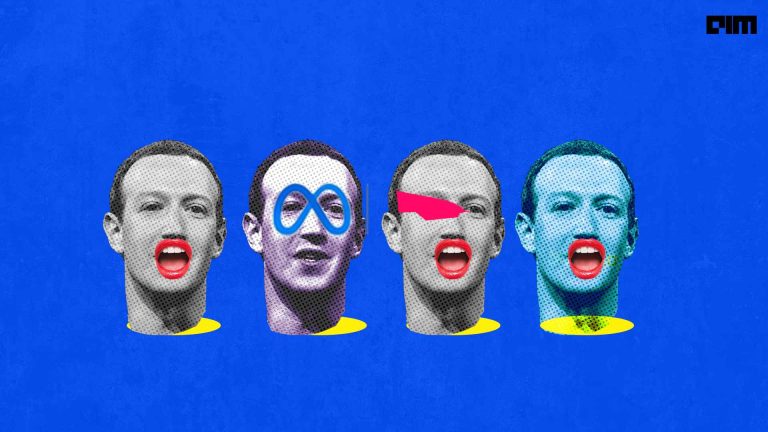|
Listen to this story
|
Meta is back in the LLM business. Google had claimed that neither they nor does OpenAI have a moat when it comes to AI, but also acknowledged that open source will pave the way for the future of generative AI. The interesting thing about this is Meta is being touted as the leader for open-source generative AI by developers because of its open-source LLM, LLaMa.
Meta has released another open-source model called MMS: Massively Multilingual Speech. The model is made for speech-to-text and text-to-speech in 1100 languages with the ability to recognise 4,000 spoken languages. French computer scientist Yann LeCun said that the model has half the error rate of OpenAI’s Whisper. This is a huge advancement when it comes to multilingual speech AI technology.
Besides this, yesterday, LeCun shared Meta AI’s latest breakthrough in LLMs. LIMA, made in collaboration with Carnegie Mellon University, University of Southern California, and Tel Aviv University, is a 65 billion parameter model built with LLaMA and fine-tuned with a standard supervised loss with only 1,000 carefully curated prompts and responses.
The most interesting part is that it does not require RLHF (reinforcement learning with human feedback), which is being implemented within ChatGPT and Bard, and told as the differentiating and the most important factor for its working. There is a possibility that this model might be implementing self-supervised learning, which LeCun has been the biggest proponent of all this while.
When it comes to performance, LeCun claims that this LIMA is on par with GPT-4 and Bard. People have been critical of this. And though excited about the development, the community is also calling out that the benchmarks to compare it with GPT-4 and Bard are not accurate. The paper is still under review.
Recovering Doomer
LeCun said in an interview, “The platform that will win will be an open one. Progress is faster when it is open.” This might seem a little contrary to the stance that the company took during this AI chatbot race. Before releasing LLaMa in February, the company was keeping itself away from LLMs. LeCun used to call these technologies “great but nothing revolutionary” and thus was also sceptical about releasing such technology to the public.
A lot of it is because the company had actually ventured into the field before any of the competition. BlenderBot and Galactica, two separate chatbots were released by the company but had to be shut down when they turned into hallucinating disasters. Probably, a lot of cynicism towards this LLM-based technology was just trauma from the past.
Just before the release of LLaMa, Mark Zuckerberg had made a Facebook post talking about reorganising its teams’ structure and focusing on generative AI technology. But, instead of building a chatbot to compete with Microsoft, OpenAI, and Google, the company took an interesting turn, and gave away its most precious asset to open source.
The still-under-review paper of LIMA shows the possibility. There is a chance that the company might venture into the field of chatbots, again. The company had been reluctant to release its models to the public earlier because of their capability of generating misinformation and toxic content, as explained by LeCun.
Quote from the article that is accurate:
— Yann LeCun (@ylecun) January 8, 2023
"Google, Meta and other tech giants have been reluctant to release generative technologies to the wider public because these systems often produce toxic content, including misinformation, hate speech […]" https://t.co/vEbAMAi6TC
Now the company has taken a different approach and released its model to the general public that also includes weights, making it a lot easier to make chatbots for developers. Seems like Meta wants a thousand chatbots to exist, but won’t make one.
Is LLaMa the moat for Meta?
The tables have turned. Google and OpenAI, the companies which were in a rush to make their chatbots public, even though keeping the technology behind closed doors for most of the cases, are now considering regulations around the technology. Meanwhile, Meta, which was always not so sure about the technology, is now making their most capable models open source.
Seems like Meta is banking on the open-source community instead of trying to build a chatbot like Google or OpenAI. For Meta, the community that is building models with LLaMa is the moat. Just like developers and creators flock around StabilityAI for its open source software, people are building model after model over LLaMa, that are outperforming GPT-4 or Bard on less computation requirements as well.
Google’s leaked document said, “The modern internet runs on open source for a reason and we should not be expected to catch up with it.” Even though Google, Microsoft, and OpenAI’s heads were called to the White House to discuss regulations around AI, Meta was left out, citing the reason that the meeting “was focused on companies currently leading the space”.
Even though Meta does not have a customer-facing AI product, they are not too behind on it as well. According to reports, Zuckerberg, during April’s earnings call, mentioned ‘AI’ at least 27 times, which might be less compared to Sundar Pichai chanting it 140 times at Google I/O, but still the company has been integrating generative AI into a lot of its apps, similar to Google.
Moreover, the FAIR department of the company has been publishing papers at a rate faster than OpenAI or Google, both of which are now more concerned about protecting their technologies.
It might be too early to tell if Meta taking sides with the open-source community would actually make a mark for them in the AI arms race. But there is no doubt that LLaMa has indeed made an impact on Google and OpenAI. Sam Altman has already discussed imposing restrictions around the technology with the US Senate.



















































































